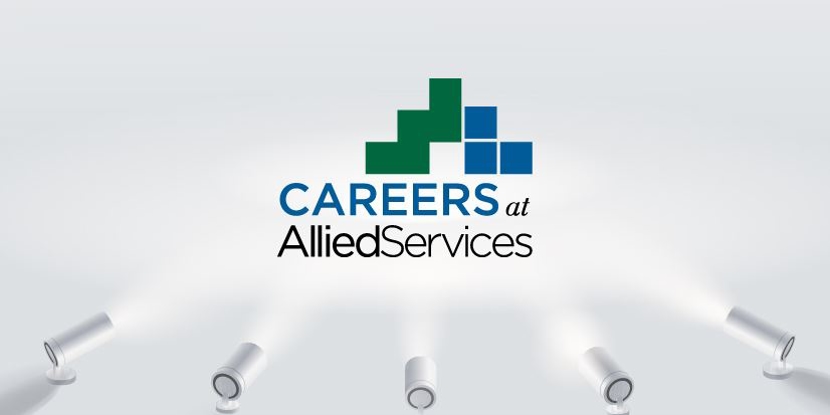Recovery From COVID-19 Not One-Size-Fits-All
- Category: News
- Posted On:
- Written By: Allied Services Integrated Health

While the mortality rate has thankfully declined sharply over the past 10 months since the start of the COVID-19 pandemic, symptoms and treatment protocols vary greatly from person to person. Some adults who’ve contracted the virus have required multiple days, weeks, or even months of hospitalization. The virus has affected everyone differently, and as well, the treatment has also been different for each COVID positive patient. Some hospitalized patients have been given the FDA-approved remdesivir, whereas many other patients have only required more common treatment with antibiotics, hydration, rest, and other more common treatments.
Similarly, people who were frail and those in a higher age risk category likely will have greater difficulty recovering from symptoms of fatigue, loss of strength, and even respiratory challenges. Those patients that have preexisting medical conditions that lead to long hospitalizations and secondary health issues including ICU-acquired weakness and other physical and respiratory challenges will likely benefit from an individualized plan of care.
In many of these high-risk cases, returning home or simply resting, may not be the best approach to a full recovery.
Older patients and those deconditioned by a virus, influenza, or pneumonia have long benefited from inpatient rehabilitation which is specifically designed to help patients regain strength and restore function while being closely monitored by post-acute medical professionals.
Physical rehabilitation, under the supervision of a physiatrist and team of medical rehabilitation experts, offers an individualized approach to treatment that assesses a patient’s prior medical history, past and current physical condition, as well as individualized goals and recovery plan of care that is always different for each individual. Some will return home completely independent, and others may transition to independent living/personal care, following discharge from rehabilitation. All of these factors and more must be considered when discussing a plan of care and establishing realistic goals for those recovering.
Since the start of the pandemic, the federal government identified the significance of physical rehabilitation in recovery for COVID patients and even waived an existing 3-hour therapy threshold which was mandated by Centers for Medicare and Medicaid, due to the anticipatory need for an individualized approach for each patient’s post-COVID recovery.
Now that we know the virus treatment must be individualized based on each person’s needs, age, and physical condition, our medical community has an obligation to choose the same individualized approach for every COVID patient’s recovery.
Dr. Kenneth W. Gentilezza, M.D., is the managing partner of Northeastern Rehabilitation Associates and Medical Director of the Transitional Care at Allied Services Rehabilitation Hospital in Scranton. Dr. Gentilezza is certified by the American Board of Physical Medicine, the American Board of Pain Medicine, and the American Board of Independent Medical Examiners.
Access quality care from home
Whether you’re looking to improve your independence, increase your mobility, balance, or endurance, live more safely at home, or manage a chronic condition, Allied Services can help. Learn more about accessing quality care from home here.
Call Tina McCarthy, RN, BSN, CPC at 570-830-8928 to access care from home or complete this short form.



